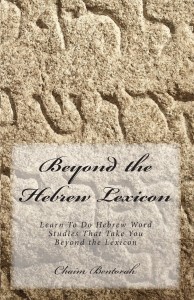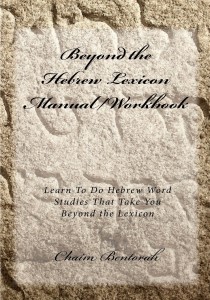
Psalms 25:6: “Remember, O LORD, thy tender mercies and thy lovingkindnesses; for they [have been] ever of old.”
The writer, I believe is David and he is asking God to remember His tender mercies. What? Is God going to forget about it? I am making an issue out of this because it sounds like He is getting ready to lower the boom on David and he is crying; “Whoo, hold it, remember you’re supposed to be filled with tender mercies.” I suppose God is going to respond with: “Oh my, David, David, David, when you’re right you’re right, I don’t know what came over me, of course I am filled with tender mercies, what would I do without you to remind me.”
I know you’re probably saying: “I don’t get that all from that.” I don’t doubt it. That is my point exactly. This word remember can mean different things to different people, just how is a translator supposed to translate the word zacar (remember) so that everyone is on the same page. The fact is he cannot. That explains why there are so many different English translations of the Bible. That is why a good rabbi will not study the Word of God in the English Bible but only in the Hebrew. That is why your pastor studied Greek and Hebrew in Seminary so he could closely examine the many nuances to a word and present his congregation with what he feels is the truth. Yet, why must you depend upon an English translation or your pastor’s personal translation when you could purchase my book Beyond the Lexicon and do it yourself (sorry for the commercial I just want to prove to my agent and publisher that I am out there beating the bushes on theirs and my behalf). The fact is the word zacar has many possible English renderings. It is or should be up to you and the Holy Spirit to see which rendering to apply.
One rendering of zacar is to make mention or to memorialize. That would fit the context here much better. David is asking God to memorialize His tender mercies. When you memorialize something or someone you are remembering but you are also honoring and calling to mind the heroic act to inspire others to do the same. I would say this should be rendered as “Memorialize, O Lord, you tender mercies and lovingkindnesses.” In other words establish a monument or something so that others will remember your tender mercies and try to emulate it.
So what are tender mercies? Different translations say different things. Generally, they will say just compassion, mercies, or great mercies or tender mercies. Our English word mercies mean pity, compassion, benevolence, or an act of kindness. The word in Hebrew is racham. I suppose mercy is about the best we have in English, yet it does not do the word racham justice. That is why many translators amplify it to great mercies or tender mercies. Yet, we still have not even scraped the surface of racham. So think about it meditate on it and see if you can come up with a word for it after I give you this brief explanation. Write me and let me know if you have an English word for this. Perhaps you speak another language and have an appropriate word, let me know, I would sure like to find one. In its Semitic origins racham was the word used for a womb. Do we have a word in English to describe what a mother feels toward that child in her womb? This is the child that is being protected by the mother, nourished by the mother, and cared for by the mother as she cares for her own body. In fact she even takes greater care of her body while that child is in her womb. She will stop smoking and drinking. She does it knowing full well it would harm her but the fact it would harm that infant inside of her is enough for her to give up those habits at least for the duration. This is the stage when the mother has her most perfect love for the child. She has yet to have the child keep her awake at night, or she has to clean up his poop. It is before the child starts crying and interrupting her normal course of existence. Sure the mother considers no loss but ever so slightly there is a little annoyance. This is before the child becomes rebellious, defiant and breaks the mother’s heart. This is the love of racham. I don’t know why we find so few translations that will not just translate this as love. Probably because our word for love falls too short of racham. The mother loves that child while in her womb with such a complete love. The child, even lacking in total awareness of what a relationship really is, is really practicing a total relationship on the mother. He is just totally dependent upon the mother for nourishment, protection and no fear whatsoever. That is racham from the infant. When we have racham with God He is has a total love for us as if we have never sinned nor wounded or broke His heart. We love Him in our lack of awareness as to just how He is protecting us and taking care of us, we just lay back soaking it up, not questioning or even trying to figure it all out.
I had a woman share with me that when her husband passed away there were hundreds of people praying for her husband to be healed, yet he was not healed. She did not understand it but yet she said she still had her faith, she had her racham. She just rested in God and did not question Him.
I asked my study team to examine the word racham esoterically and see what they would come up with. The word is spelled Resh, Cheth, Mem. They concluded that the Resh represented the Holy Spirit. The Cheth represented grace. Grace in Hebrew is chanan and in its Semitic root is the word used for a lover longing to be joined with his beloved. The final letter is the final Mem which represents the hidden knowledge of God. In other words esoterically racham means the Spirit of God’s longing and desire to share the depths of His hidden knowledge with us. David is asking that God memorializes or brings to the attention of the world his deep longing and desires to share the secrets of His heart with those who love Him. By the way my study team used my book Beyond the Lexicon to arrive at his insight. You can purchase it on Amazon. (Ok that will be the last commercial).
So until tomorrow same time same station this is Chaim Bentorah signing off thanking our sponsor Beyond the Lexicon for making this study possible.
http://www.amazon.com/Beyond-Hebrew-Lexicon-Learn-Studies/dp/1508601038









I saw a movie with Tom Cruise called “Oblivion.” Throughout the movie he kept seeing clues that something else was out there besides the existence he was living. He was oblivious to what it really was except for the clues that were leading him. God has done and is doing that with us. We keeping seeing a little more everyday of where we are going. I don’t have a word for it other than “leading.” So I agree with your “sponsor” about recham it’s a leading, showing us clues along the way to our glorious home.